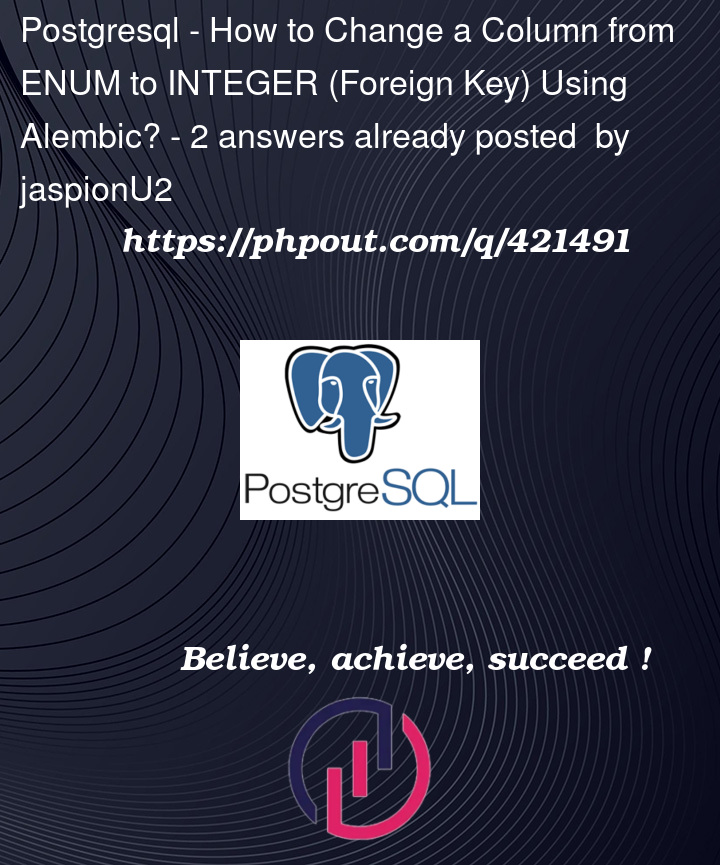I am trying to alter a column’s type from ENUM to INTEGER (which is also a foreign key) in PostgreSQL using Alembic. However, when I attempt to upgrade the migration, I encounter the following error:
sqlalchemy.exc.ProgrammingError: (psycopg2.errors.CannotCoerce) cannot cast type serie_enum to integer
LINE 1: …R COLUMN serie_aluno TYPE INTEGER USING serie_aluno::integer
[SQL: ALTER TABLE aluno ALTER COLUMN serie_aluno TYPE INTEGER USING serie_aluno::integer]
Here is the migration file generated by Alembic:
def upgrade() -> None:
# ### commands auto generated by Alembic - please adjust! ###
op.alter_column('aluno', 'serie_aluno',
existing_type=postgresql.ENUM('6', '7', '8', '9', name='serie_enum'),
type_=sa.Integer(),
existing_nullable=False,
postgresql_using="NULL")
op.create_foreign_key(None, 'aluno', 'serie', ['serie_aluno'], ['id_serie'])
# ### end Alembic commands ###
def downgrade() -> None:
# ### commands auto generated by Alembic - please adjust! ###
op.drop_constraint(None, 'aluno', type_='foreignkey')
op.alter_column('aluno', 'serie_aluno',
existing_type=sa.Integer(),
type_=postgresql.ENUM('6', '7', '8', '9', name='serie_enum'),
existing_nullable=False)
# ### end Alembic commands ###
How can I successfully convert a column from ENUM to INTEGER while ensuring the foreign key constraint is created correctly?




2
Answers
There is no cast defined from your custom enum type
serie_alunotointeger. (Unless you create such a cast explicitly.)But everything can be cast to
text. If all enum values are represented by valid integer literals, you can usetextas stepping stone:To then add a
FOREIGN KEYconstraint pointing to anintegercolumn:Or do it in a single ALTER TABLE command:
fiddle
This is kind of messy but I had to make the column nullable with one alter before I could make the subsequent alter to change the type and set all the values to
NULL. You can actually migrate the enum to hardcoded ints if you know the mapping and use aCASEstatement which you said you didn’t need but I thought was pretty cool.